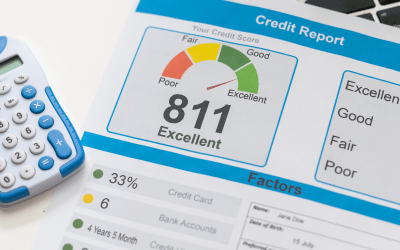If you’re planning to buy a home, one of the first things you should understand is how to increase your credit score. A strong score not only improves your chances of being approved for a mortgage but can also help you secure better interest rates and more flexible terms. Whether you’re a first-time buyer or looking to remortgage, taking steps to strengthen your credit profile is one of the most important moves you can make before applying.
In this blog, we’ll cover the practical steps you can take, why they matter, and how your credit score plays a big role in achieving your dream of homeownership.
Why Does Your Credit Score Matter?
Your credit score is essentially a measure of your reliability as a borrower. Lenders use it to decide whether you’re a safe bet for repaying loans. The higher your score, the less risk you pose, which often means better mortgage offers.
If you’re planning to apply for a mortgage in the near future, focusing on how to increase your credit score is one of the best ways to put yourself in a strong position before approaching lenders. You can use credit reference agencies such as Experian and Equifax to check your credit score.
How to Increase Your Credit Score: Step-by-Step Guidance
Improving your credit score doesn’t happen overnight, but consistent effort can make a big difference. Here are the steps you should follow:
1. Check Your Credit Report Regularly
Start by reviewing your credit report with major credit reference agencies. This will help you understand your current score and highlight areas for improvement. If you find any errors, such as outdated information or inaccuracies, contact the agency immediately to have them corrected. Even small mistakes could hold back your score.
2. Make Payments on Time
Your payment history is one of the biggest factors influencing your credit score. Set reminders or, even better, set up Direct Debits for your credit cards and other bills. This ensures you never miss a payment, showing lenders you are consistent and reliable.
3. Reduce Your Credit Utilisation
Your credit utilisation ratio is the amount of credit you’re using compared to your overall limit. For example, if you have a £2,000 credit limit and you regularly spend £1,500, you’re using 75% of your available credit, which could lower your score. Experts recommend keeping this below 25%. If possible, ask for a credit limit increase, but remember not to use this as an excuse to spend more.
4. Avoid Too Many Applications at Once
Each time you apply for credit, it leaves a mark on your report. Multiple applications in a short time can make you appear desperate for credit, which worries lenders. Stick to no more than two applications within six months if you want to keep your score healthy.
5. Build a Long-Term Credit History
The older your credit accounts, the better. Lenders view long-standing accounts as a sign of stability and experience in managing money. Avoid closing old credit cards unless absolutely necessary, as they contribute to your credit history.
6. Stay Organised and Patient
Improving your credit score takes time. Consistency is key, the longer you maintain good habits, the more your score will grow. Think of it as a marathon, not a sprint.
5 Key Factors That Affect Your Credit Score
Understanding what impacts your score helps you focus on how to increase your credit store:
Payment History: On-time payments are crucial.
Credit Card Use: Keep utilisation below 25%.
Age of Credit Accounts: Older accounts show reliability.
Recent Credit Applications: Too many can hurt your score.
Credit Mix: A healthy balance of credit types (e.g., credit card, personal loan, mortgage) can be beneficial.
By improving in each of these areas, you’ll naturally see progress in your score over time.
The Connection Between Credit Scores and Mortgages
When applying for a mortgage, lenders will consider your income, employment, deposit size, and importantly your credit score. A strong score can mean:
Lower interest rates.
Higher approval chances.
Access to a wider range of mortgage products.
If you’re unsure where you stand, or need advice on how to increase your credit score it’s always wise to speak with an expert mortgage advisor who can guide you through your options and help you prepare before making an application.
Taking the Next Step
Improving your credit score requires consistency, patience, and good money habits. By checking your credit report regularly, keeping your utilisation low, and making payments on time, you’ll be on the right track.
When the time comes to apply for a mortgage, having the right support can make all the difference. Working with a mortgage advisor ensures you understand the options available to you and approach lenders with confidence.


